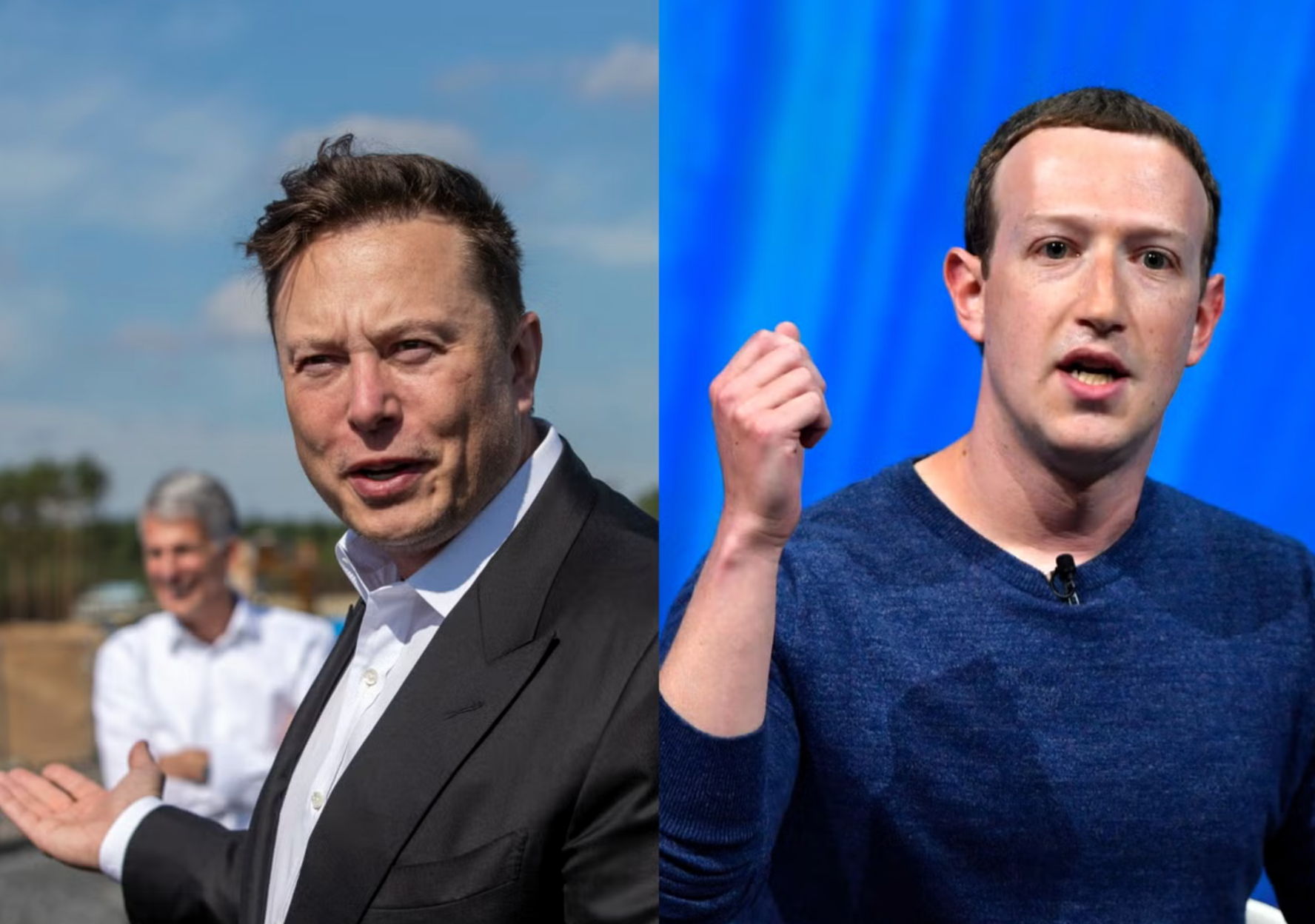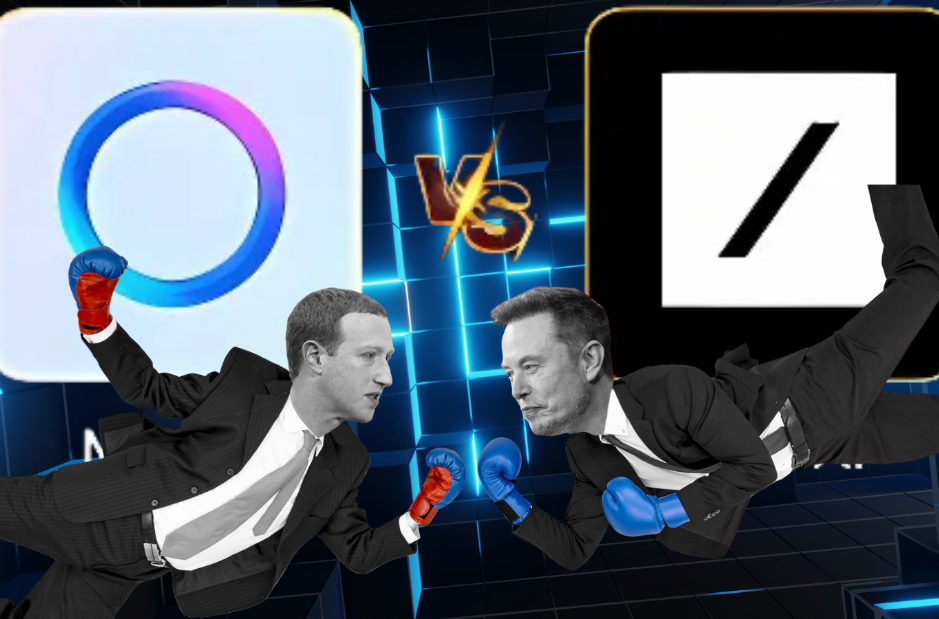Meta has officially announced that its AI platform has surpassed one billion users—a monumental milestone that showcases the company’s dominance in the artificial intelligence space. But while headlines celebrate this achievement, a deeper, more contentious narrative is unfolding: Mark Zuckerberg’s escalating rivalry with Elon Musk.
On the surface, this appears to be a tech clash of titans. But beneath the branding wars and public jabs lies a darker game—one that touches on the future of human-computer interaction, global information control, and even geopolitical power. This article dives deep into what’s really at stake in the ongoing AI war between Meta and X (formerly Twitter), Tesla, and xAI.
Meta’s AI Boom: A Milestone or a Mirage?
Meta’s suite of AI tools—integrated into Instagram, Facebook, WhatsApp, and Messenger—has seen explosive growth. With LLaMA (Large Language Model Meta AI) being integrated into more applications and Meta’s open-source model drawing praise from developers worldwide, the one-billion-user figure feels well-earned.
But critics argue this number may be inflated by passive users—people exposed to AI-generated content without actively engaging with it. Still, there’s no denying Meta’s reach is unparalleled, particularly given its social media ecosystem.

The Public Rivalry: Zuckerberg vs Musk
Mark Zuckerberg and Elon Musk have long danced on the edge of conflict, from their debates over AI safety to their notorious cage match tease. In recent months, their battle over AI dominance has intensified:
-
Zuckerberg has pushed for open-source AI, framing it as a move toward democratization.
-
Musk, through xAI and his rebranded social platform X, insists that Meta’s models are manipulative and prioritize ideology over truth.
Musk went so far as to call Meta’s platforms “mind control machines” while Zuckerberg countered with comments about Musk’s “cult of personality” approach to tech.
But is this personal beef, or is it something more?
What’s Really at Stake in the AI Tech War?
1. Control Over Information Flow
AI platforms are quickly becoming the gatekeepers of information. When LLMs (like LLaMA or xAI’s Grok) are embedded in social media or search, they shape what users learn, see, and even believe.
-
Meta’s AI is optimized for social interaction, algorithmic content curation, and ad targeting.
-
Musk’s xAI, however, positions itself as the “anti-woke,” “truth-seeking” model—less filtered and more raw.
The conflict isn’t just about users. It’s about owning the digital lens through which humanity interprets the world.
2. AI Ethics and Regulation Influence
Both CEOs are racing to shape AI policy. Zuckerberg supports regulatory frameworks but wants flexibility for open-source models. Musk, despite warning about AI risks, wants government oversight only after xAI becomes competitive.
This puts Meta and xAI in direct competition for lobbying influence over future tech laws—laws that could define AI development for decades.
3. Global Market Penetration
Meta dominates in the West, Africa, and parts of Asia. Musk is leveraging his Tesla networks in China, Starlink in remote areas, and X’s growing user base to spread xAI.
Their AI arms are strategic weapons for international expansion. Whoever wins this war could set the global AI standard, especially in developing nations.
4. Monetization of AI Products
Meta is embedding AI in every corner of its ecosystem—from shopping suggestions to ad targeting and creator tools. Musk’s plan is to monetize Grok via subscriptions through X Premium and enterprise APIs.
They’re fighting for the same pie—advertisers, developers, and end users—but using completely different business models.
SEO keywords: Zuckerberg Musk rivalry, Meta vs xAI, AI ethics battle, AI regulation war, tech billionaires clash, AI in geopolitics
Musk’s Allegations: Meta’s AI as “Censorship Machines”
Musk has repeatedly accused Meta of “training their AI to lie,” claiming their models are designed to reinforce social narratives rather than objective truth. He argues that AI must prioritize factual integrity, even at the cost of controversy.
Zuckerberg, by contrast, says Meta’s AI is carefully trained to avoid “harmful, toxic, or misleading outputs,” emphasizing safe AI deployment at scale.
The problem? Neither has provided transparent documentation of their models’ training data or guardrails. The war of words has obscured a shared reality: both companies are training AI systems that reflect their corporate values—and influence billions.
A Battle of Philosophies: Centralization vs Decentralization
-
Meta’s model: Centralized control, seamless integration across its platforms, and data-driven content generation.
-
Musk’s vision: Decentralized information, user-controlled algorithms, and raw outputs through Grok.
The deeper question: Should AI serve the company or empower the individual?
This ideological divide could shape the future of the internet.
The Role of the Media in the Tech War
Interestingly, the mainstream media has largely romanticized this rivalry, focusing on Zuckerberg’s jiu-jitsu or Musk’s tweets, rather than the actual AI arms race.
But make no mistake—this is not a harmless feud. It’s a battle for dominance in:
-
How people search for knowledge
-
How digital assistants guide decisions
-
How narratives are shaped and distributed
As these companies feed their AI on billions of human interactions, the risk of algorithmic manipulation grows. Yet, media coverage often misses the point: the winners of this war will control the next generation of digital thought.
Could There Be a Darker Agenda?
Some analysts believe that both CEOs are masking their true intentions. Meta’s open-source model might seem transparent, but its deployment across surveillance-heavy platforms like Facebook and Instagram raises questions.
Musk’s claims of free-speech AI are undermined by reports of moderation on X and xAI’s bias toward specific ideologies.
Both camps want to win public trust, but may ultimately be chasing centralized power through decentralized branding.
Where Do We Go From Here?
For consumers, this war might seem distant, but it has very real consequences:
-
What AI we use at work and home
-
What content we see and trust
-
What kind of future we help build by choosing platforms
The more we understand these dynamics, the better we can push for accountability, transparency, and user rights in an AI-powered future.
More Than Just a Rivalry
Meta’s milestone of one billion AI users is a historic achievement—but it’s only part of the story. The tech war between Zuckerberg and Musk is not just a personal or professional rivalry. It’s a battle for the soul of AI, the control of digital ecosystems, and the narrative of the 21st century.
As users, developers, and citizens of a rapidly evolving tech world, we must ask critical questions: Who should control the most powerful tools of information in human history? And are we watching a feud—or living through a digital cold war with consequences we barely understand?
